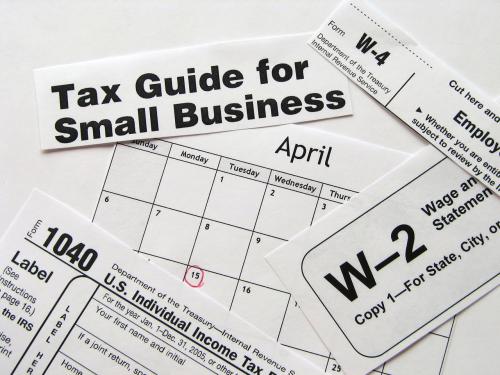CPA Practice Advisor
Soon enough, the holidays will have come and gone, and you will be getting ready for your busiest time of the year – tax season. Before you’re up to your neck in small business clients’ expense receipts and other financial documents, take advantage of the end of the year when many business owners are reviewing their functions and work processes. Offer up advice that ensures your small business clients are taking the necessary steps to maximize efficiency during the tax prep process, and more importantly, avoid an IRS audit.
Even though audits were way down in 2016 – approximately one million taxpayers were audited, a 14-year low – as a valued and trusted business advisor, it is important that you provide your clients with insightful knowledge so that they can do everything in their power to avoid an audit. Some preventative steps that you should encourage your small business clients to take so that they avoid that dreaded IRS notice include:
Invest in the cloud
Many “mom-and-pop” small businesses have been functioning the same way for years, or even decades, but those that are not operating on the cloud are more behind than they may think. Not only will transitioning a businesses’ bookkeeping and accounting processes online provide a significant boost to the entire back office, but by saving their important business documents to the cloud, small business owners and their advisors can easily access specific data points, like vendor names, totals and dates, that are made key-word searchable, saving hours of tedious work.
Your small business clients should understand that their online accounting software, whether it’s QuickBooks Online, SageOne, or another option, can serve as the centralized hub of their financial data. There is a myriad of third-party applications, designed specifically for small businesses that can be integrated into their accounting software of choice, resulting in an extremely efficient and organized engine that is tailored to the business’ exact needs. Not only does this system streamline everyday business workflows, but, if the business was to receive a correspondence audit, it would allow the owner to quickly address the IRS notice with nothing more than a laptop and internet connection.
Use a payroll service
Discrepancies between payroll tax withholdings and payments are common triggers for correspondence audits, meaning one minor error can result in hefty penalties and interest. A credible payroll service provider can establish the correct federal and state deposit schedules and rates, file and pay taxes on time and manage all new hire responsibilities, but most importantly, an experienced payroll professional can resolve the majority of IRS and stat notices relatively quickly.
Require W9s for independent contractors
One critical responsibility for all small businesses is to issue Form 1099 to all independent contractors and non-exempt organizations that are making at least $600 from your company in a calendar year. The small business is also required to file a 1099 with the IRS and distribute a copy to the vendor by January 31st of the following year, so owners and managers should implement an internal policy that prevents any vendor from getting paid until the business receives a signed copy of their W9.
It is also important to make sure your small business clients are reporting income from all sources and reviewing each 1099 received against their records, to ensure accuracy. The IRS’s concise, complex programs can quickly red-flag a business when their reported income is lower than the cumulative amount of the 1099’s issued.
Keep digital copies of receipts
When your small business clients fail to furnish receipts for things like travel to an industry event, lunch with a customer or a team outing to the ballgame, the results can be the removal of these expenses as deduction, ultimately resulting in additional tax owed, including penalties and interest. Encourage your clients to invest in mobile applications that allows users to snap and store images of receipts before importing them into their accounting system, so deductions can always be corroborated with actual documentation and proof of business intent.
Understand sales tax obligations and file returns on time
Triggers for sales and use tax audits vary by state and can come at any time, and proving calculations on returns from previous periods is both extremely challenging and time-consuming. It is vital that your small business clients’ gross sales according to the sales tax filings add up to and match what is reported on the income tax return because any discrepancy is a red flag. Small businesses also need to have sound explanations of the exempt sales that were reported to prove why the business did not collect tax on those sales.
Lastly, small businesses should be wary of modifying invoices and payments within their accountings system from prior periods because the adjustments can potentially generate discrepancies in gross sales and the sales tax liabilities for that period. For example, a business that files on an accrual basis and deletes an old invoice, as opposed to properly writing it off as bad debt, will immediately compromise the returns that were filed successfully. In order for a business to prevent the modification of any transaction that is already in a reconciled state, suggest that the owners or managers close out each month with a password.
Closing
As a business advisor, it is your job to not only be your small business clients’ biggest fan, but more importantly, their biggest critic. Do not hesitate to provide clients with pointed suggestions and voice concerns when you feel that they are engaging in careless or suspicious activity, or lacking from a compliance standpoint. As a client’s trusted advisor, accountants need to be able to provide their small businesses with tech-savvy, forward-thinking insight and tools that allow them to work smarter while avoiding the many red-flags that can trigger an audit.
——
By Kevin Miller is CMO at Neat.
Thanks for reading CPA Practice Advisor!
Subscribe Already registered? Log In
Need more information? Read the FAQs




